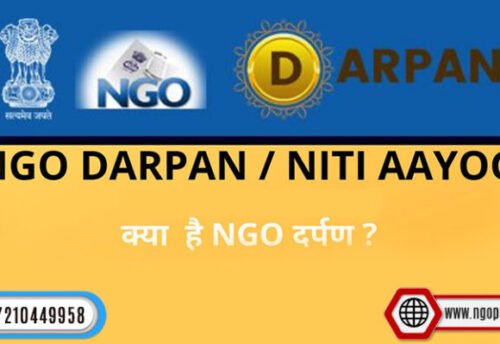
- May 31, 2023
- NGO Partner
- 0 Comments
- 1135 Views
- 0 Likes
- Marketing Company Blogs
Article 377 in Constitution of India
The Repeal of Article 377 and the Fight for LGBTQ+ Rights in India
Article 377 of the Indian Constitution was a law that criminalised homosexuality in India. The law was introduced during British colonial rule in 1860 and remained a part of the Indian Penal Code until 2018 when it was finally repealed by the Indian Supreme Court. The repeal of Article 377 was a major victory for the LGBTQ+ community in India and marked a significant milestone in the country’s journey towards inclusivity and equality.
A Colonial Relic: The Origins of Article 377

The roots of Article 377 can be traced back to the British colonial era when India was under the rule of the British Empire. During that time, the British imposed their Victorian moral values on Indian society, including their views on sexuality. Article 377 was introduced in 1860 as a part of the Indian Penal Code, criminalizing “carnal intercourse against the order of nature.” This vague and archaic law was primarily influenced by Victorian notions of morality and was used to suppress and stigmatize non-heteronormative sexual behaviors.
Despite growing demands for its repeal over the years, Article 377 remained unchanged for more than a century.
Struggles and Setbacks: Challenges Faced by the LGBTQ+ Community
The law’s impact on the LGBTQ+ community in India was severe. Police often used Article 377 as a tool to harass and blackmail members of the LGBTQ+ community, and it made it difficult for queer individuals to access healthcare and other basic services due to fear of being outed. The law also perpetuated harmful stereotypes and reinforced discrimination against LGBTQ+ individuals, creating a culture of fear and stigma that persisted for generations.
However, over time, there were growing calls for the repeal of Article 377. LGBTQ+ activists and allies across India began to speak out against the law, arguing that it violated their fundamental human rights. In 2009, the Delhi High Court declared Article 377 unconstitutional and struck it down, a decision that was celebrated by the LGBTQ+ community across India.
However, this decision was overturned by the Indian Supreme Court in 2013, leading to widespread protests and activism by LGBTQ+ individuals and allies across the country. The LGBTQ+ community continued to fight for the repeal of Article 377, arguing that it violated their fundamental human rights.
The Turning Point: Delhi High Court's Landmark Decision
Finally, on September 6, 2018, the Indian Supreme Court struck down Article 377 in a historic decision. The Court ruled that the law was discriminatory and violated the rights of LGBTQ+ individuals. The decision was celebrated by LGBTQ+ activists and allies across India and around the world, as it marked a significant step towards greater inclusivity and equality for all.
Dark Days and Resilience: Overturning the High Court's Ruling
The repeal of Article 377 was a major victory for the LGBTQ+ community in India and marked a significant milestone in the country’s journey towards inclusivity and equality. It demonstrated that public opinion and social norms around LGBTQ+ issues were changing, and that the voices of marginalized communities could be heard and valued.
The text of Article 377 stated that “Whoever voluntarily has carnal intercourse against the order of nature with any man, woman or animal, shall be punished with imprisonment for life, or with imprisonment of either description for term which may extend to ten years, and shall also be liable to fine.” The term “carnal intercourse against the order of nature” was widely interpreted to mean any sexual act other than penile-vaginal intercourse, including oral and anal sex between consenting adults of the same sex.
The law was used to persecute and discriminate against LGBTQ+ individuals in India. Police often used Article 377 as a tool to harass and blackmail members of the LGBTQ+ community, and it also made it difficult for queer individuals to access healthcare and other basic services due to fear of being outed.
A Historic Triumph: The Supreme Court's Decision on Article 377
In 2009, the Delhi High Court declared Article 377 unconstitutional and struck it down. However, this decision was overturned by the Indian Supreme Court in 2013, leading to widespread protests and activism by LGBTQ+ individuals and allies across the country. The LGBTQ+ community continued to fight for the repeal of Article 377, arguing that it violated their fundamental human rights.
Finally, on September 6, 2018, the Indian Supreme Court struck down Article 377 in a historic decision. The Court ruled that the law was discriminatory and violated the rights of LGBTQ+ individuals. The decision was celebrated by LGBTQ+ activists and allies across India and around the world, as it marked a significant step towards greater inclusivity and equality for all.
However, despite the repeal of Article 377, LGBTQ+ individuals in India continue to face discrimination and stigma. There is still much work to be done to ensure that queer individuals have equal rights and protections under the law, and that they are able to live their lives free from fear and persecution.
In conclusion, Article 377 was a discriminatory and oppressive law that criminalized homosexuality in India for over 150 years. Its repeal was a significant victory for the LGBTQ+ community, but there is still much work to be done to ensure that queer individuals in India are treated with dignity, respect, and equality. It is up to all of us to continue the fight for justice and equality, and to create a world where everyone is free to be who they are, love who they want, and live their lives to the fullest.
Here is another informative blog on Article 21 of Indian Constitution



Leave a Comment